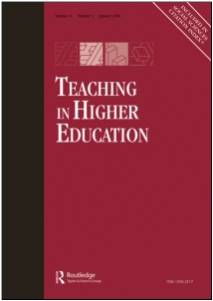Dear friends,
I have read your responses from both last year and this year and I enjoyed your thought provoking questions and comments. In my contribution last year, I suggested that more exploration was needed about the practical consequences of ‘pedagogy of discomfort’ in different cultural and political settings. In your intriguing responses over these two years, I have noticed that you are indeed engaged with analyzing some of these consequences in the context of post-Apartheid South Africa. I find this extremely valuable and helpful for pushing the theory and praxis around ‘pedagogy of discomfort’ in different cultural and political settings.
For example, an issue that I find to be recurring in several responses and which is directly relevant to the context of SA is whether one can feel comfort and discomfort at the same time, when he or she is challenging oppressive structures. Clearly, there is no easy answer to this question, but this issue pushes ‘pedagogy of discomfort’ to its ethical and epistemological limits and I think it is courageous that you are seeking ‘answers’ within your own specific setting. My most recent work makes an attempt to address some aspects of this issue (see reference below) and so I am curious in the future whether the ‘solution’ provided there (in my own setting) has any resonance to the South African context. My ‘answer’ is that occasionally and for strategic purposes, we need to be empathetic with positions that cause us discomfort, if we want to open up affective spaces which might eventually disrupt the emotional roots of what Jonathan Jansen calls ‘troubled knowledge’. This is an example where one might feel both comfort and discomfort, but it is clearly not an easy position to adopt in anti-racist education and it certainly needs further exploration.
I thank you all (especially Brenda Leibowitz) for the opportunity to share my reactions after reading your responses. The analysis of ‘pedagogy of discomfort’ gets more and more richer because of the stories you add each time and the new questions you raise.
Reference:
Zembylas, M. (2012). Pedagogies of strategic empathy: Navigating through the emotional complexities of antiracism in higher education. Teaching in Higher Education, 17(2), 113-125.


